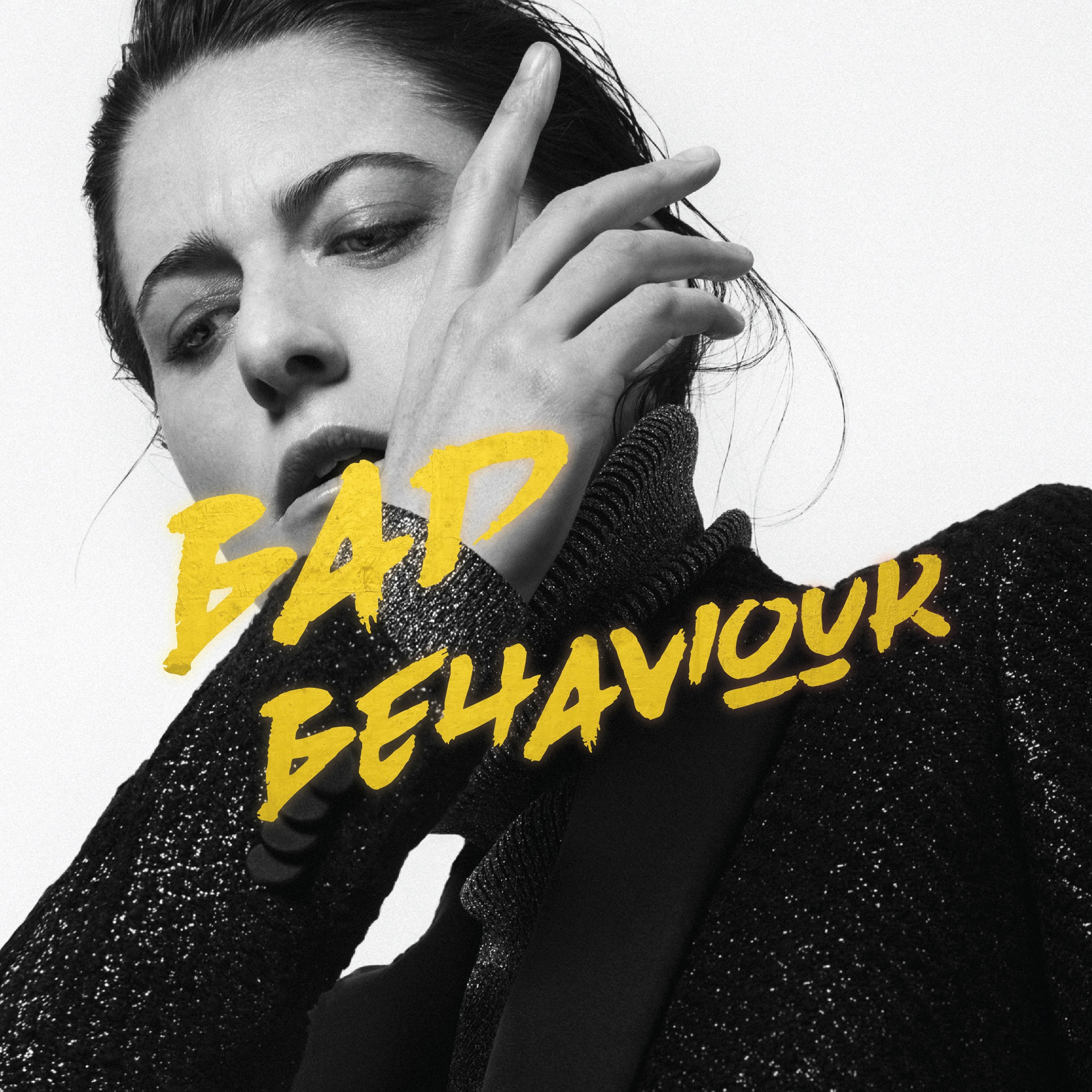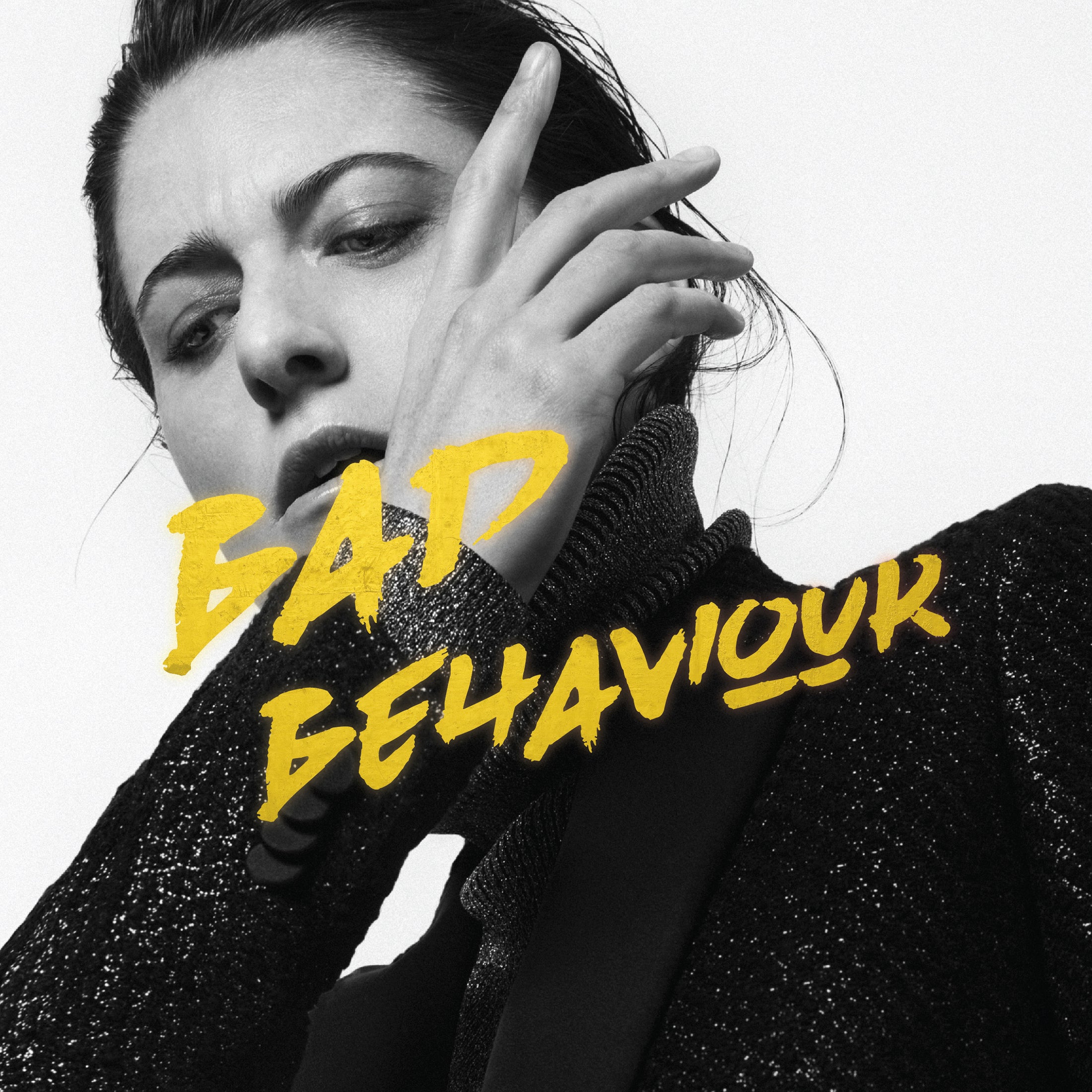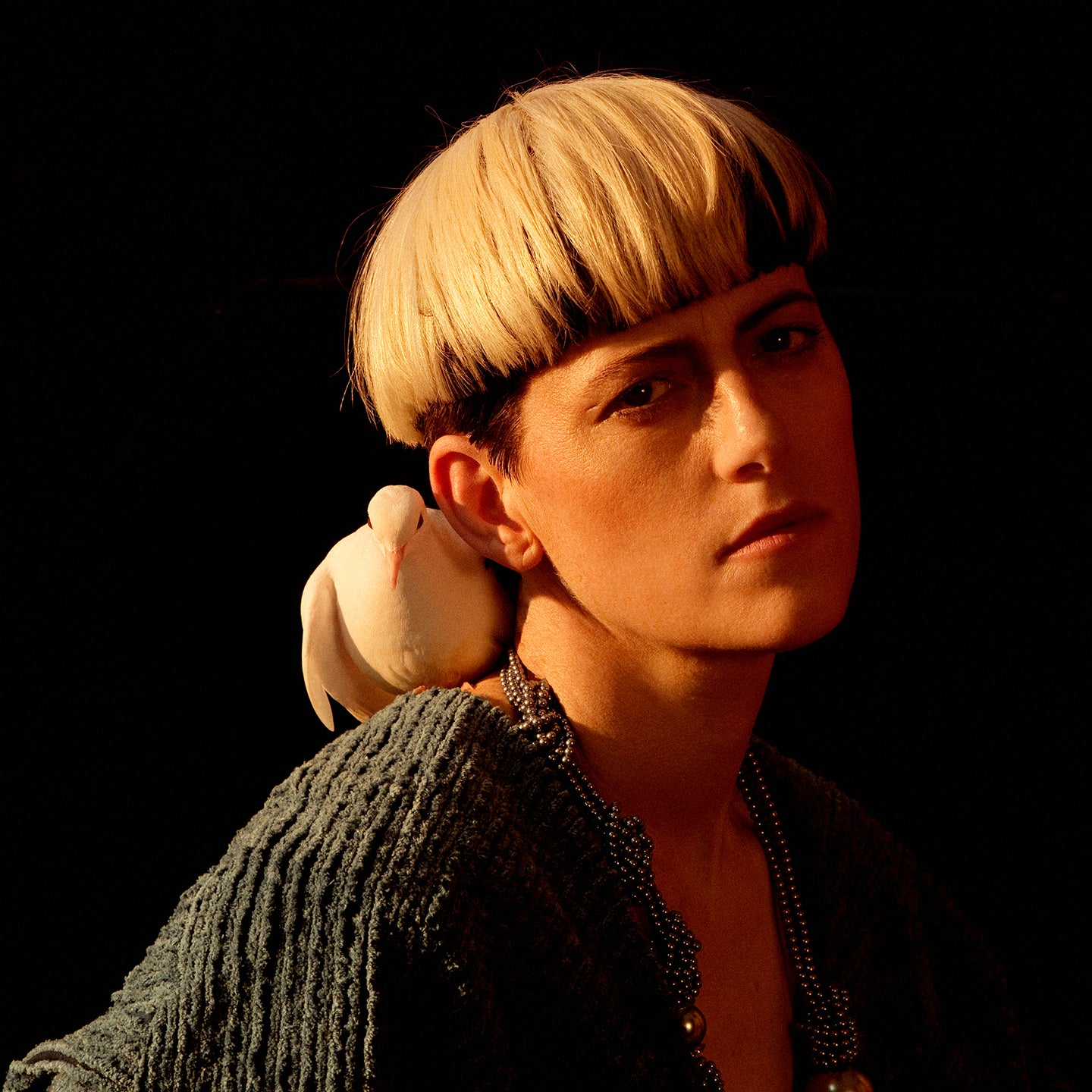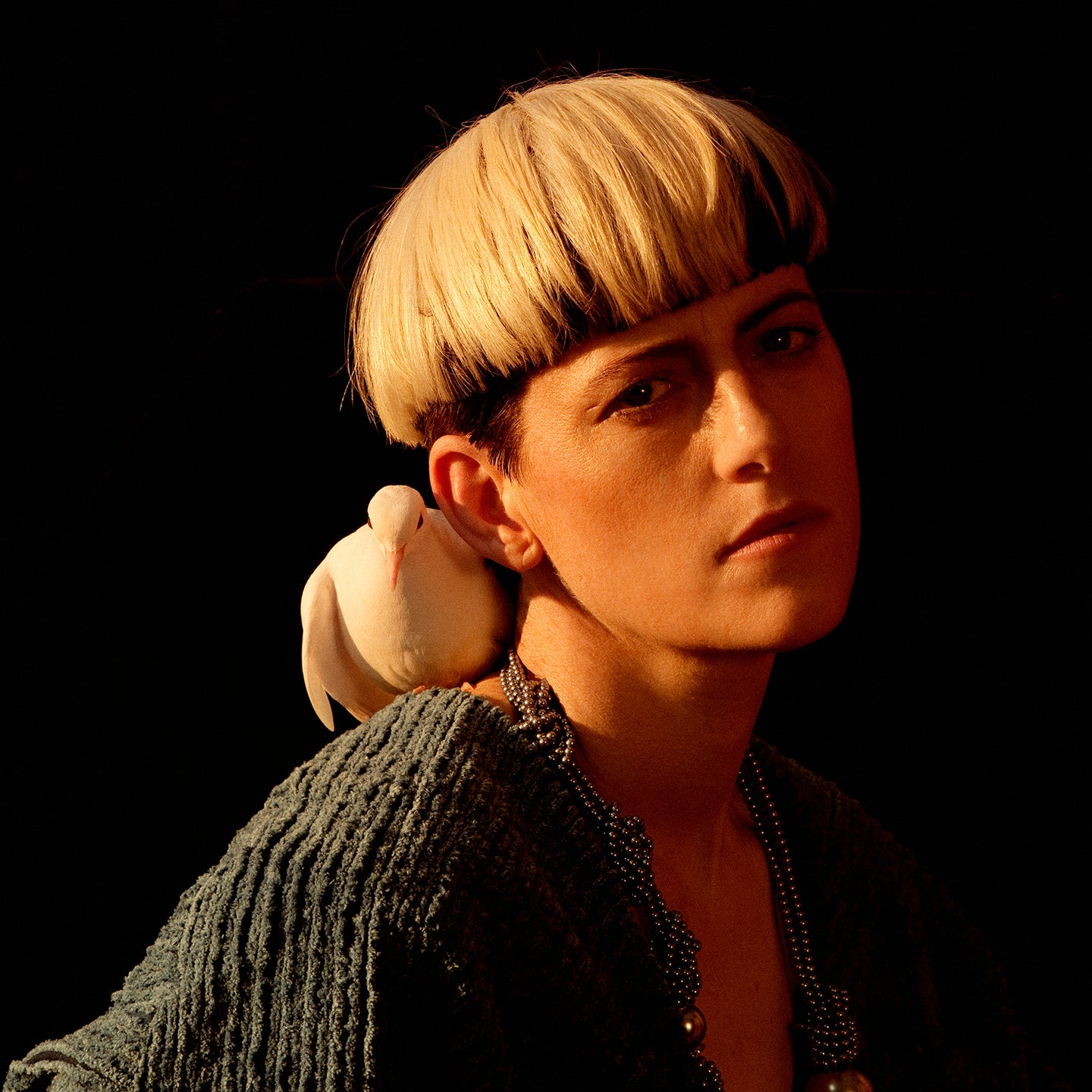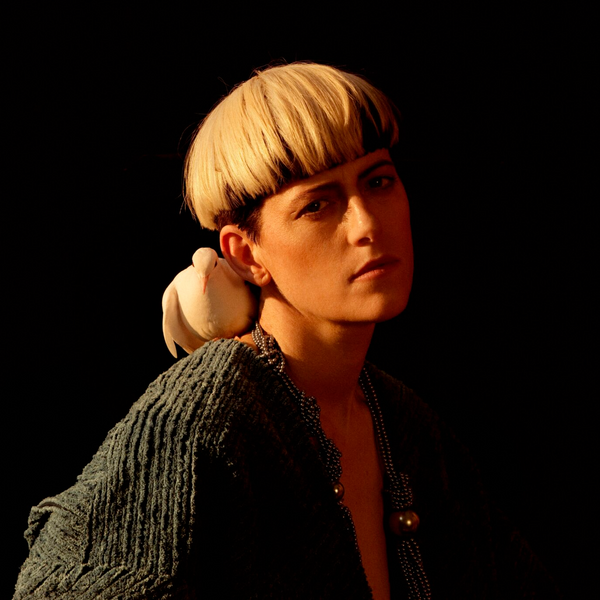
WEBSITE
Kat Frankie
Kat Frankie is a time traveler. Not in the sense of a nostalgic idealization. Not in terms of her sound either. No, her wandering between the past and the future is not reflected aesthetically. It is more the sublimity of her perspective: Kat Frankie traces the loose ends of history, follows them into the present, uses them to precisely examine the political turmoil of our day, understands the connections, the continuation of the catastrophes - and thus directs her knowing gaze towards the future. She translates the moods that come to her in this examination into text and music.
Time travel, then, more in the sense of poetry. Or: a visitation. Her new album is therefore also the work of a grown observer, a sensitive thinker, an angry storyteller. But above all: a great songwriter. The 43-year-old seems to stand above time in her craft, and from there seems to direct her worried gaze at the interrelationships of human action.
But enough of the abstraction. First and foremost, Kat Frankie is – and this is very tangible here – a singer. She says so herself: »I was physically built to sing.« And despite the worried, melancholic tone of her music, singing also contains a feeling of well-being, a physicality. Perhaps also – in a positive sense – an inkling of one's own importance as an active being. In any case, she is addicted to it. Singing may be her way of life. More than ever, in the nine pieces on »Shiny Things« she asks herself what art can change. A reflection that has led, for example, to print the lyrics for the first time in her career, which are always created simultaneously and in conjunction with the music. More than ever, her words speak to a critical zeitgeist, asking about the conditions of our coexistence and about our own importance in it. In the writing process, a unique relationship between beauty and sadness, between floods of light and darkness, emerged. »Like walking on broken glass,« she says. The music offers hope, the lyrics follow a worried look. But there is no program behind it: the song itself shows what it needs, what it can be.
Kat Frankie's songs, which can definitely be attributed to stubborn pop music, are all carried by something that elevates them. This is already clearly evident in the title-giving opener »Shiny Things«: In a powerful, densely orchestrated treatise on the inseparable relationship between beauty and decay, the Australian, who has lived in Berlin since 2004, lets light reflections flash from surfaces that are already starting to rust, and subtly turns to the moments in between, in which the past and the future touch. The dynamic continues with a sizzling »Spoiled Children«, which denounces the decadence of white privilege in the guise of early Interpol. The following »The Sea«, an attack on the misanthropic arrogance of political demagogues in song form, also shows the focus on a guitar sound, here reminiscent of the late 90s, heavy and at the same time played with great subtlety. »Be Like Water« is a concrete instruction for revolutionary practice, and lets the people who raised their voices in the mass protests in Hong Kong in 2019/2020 hear the voices. »Riverside« also shows how Kat Frankie's songwriting has been perfected in dramaturgical terms: The song follows an incredibly driving groove, builds up, is eventually all around you, meets the ears (oh, the soul!) tenderly and gently and with unspeakable intensity. In the questioning »Natural Resources« the music becomes more relaxed again, but with a powerful voice it denounces the exploitation of bodies and resources that we experience in capitalism: they are only given value if they bring in money. With »Wrong« at the latest, Kat Frankie's enthusiasm for the 1995 Radiohead album »The Bends« is evident, as the multi-instrumentalist dances lightly and performs a compositional density that she has not seen since the secretopus magnumthe Brits were rarely heard. If you consider the depth that arises between all of this, »Love« (in a double sense: for the album and quite existentially) then provides a not inconsiderable reassurance, as the balladesque piece, sung in a duet with Fama M'Boup, knows that you don't have to be alone in all of this. The album ends with »Roadmovie«, which brings us back to reality from this dream journey like the leisurely landing of a spaceship... and then again not:»The dream makes the dreamer, the vision the king / The structure of things undone / Stare at the ceiling, sit on the bed / Waiting for sleep to come«With these final words of her best album to date, Kat Frankie makes us long to return to the state of the past 34 minutes. So:repeat!
If »Shiny Things« could talk about itself, it might say:I am music. I am the dance that the ghosts of the past perform between us, invisible and yet present. I am the yearning sound of nostalgia for a better future, the fulfillment of which was already destroyed in the past. I am the haunting of the present. I am both sadness and hope.So you could describe Kat Frankie's nine pieces on "Shiny Things" as protest music. But as a kind of melancholic protest music that brings a little-noticed sphere of rebellion into play: the multi-voiced, subtly orchestrated mourning of something that cannot be and yet exists in this embracing phantom pain that perhaps only reveals itself in the song. And there they are again: the ghosts of revolution that rise through this album. People will not be able to escape them. So it is important to dedicate this music to them. Kat Frankie wrote it for that purpose. They are full of dignity and beauty.
–Hendrik Otremba


